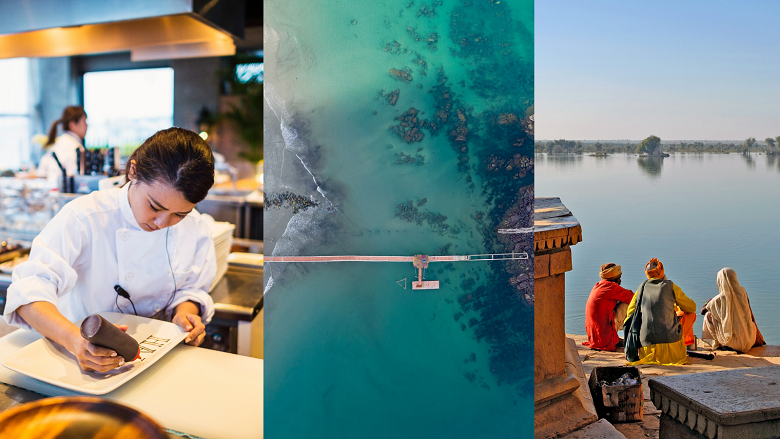The 21st century has witnessed a dramatic transformation in global tourism, shaped by technological innovation, economic globalization, shifting traveler preferences, and rising awareness of sustainability. What was once a privilege of the wealthy has evolved into a global phenomenon accessible to millions across diverse social and economic backgrounds. The modern travel landscape reflects a dynamic interplay between convenience, experience, and responsibility.
1. The Digital Revolution and the Rise of Smart Tourism
At the turn of the century, the digital revolution reshaped how people plan and experience travel. The emergence of the internet, followed by mobile applications, online booking platforms, and digital payment systems, has made tourism more accessible and transparent. Websites like Expedia, Booking.com, and Airbnb revolutionized accommodation and travel planning, while social media platforms such as Instagram, TikTok, and YouTube began to influence destination choices and traveler behavior.
Smart tourism has also emerged, integrating technologies such as Artificial Intelligence (AI), Virtual Reality (VR), and Big Data to enhance visitor experiences. Travelers can now explore destinations virtually before visiting, while AI driven recommendations personalize itineraries and improve decision-making.
2. Globalization and Accessibility
Economic globalization has broken barriers, making international travel easier than ever. The growth of low cost airlines, open-sky policies, and relaxed visa regulations have expanded travel opportunities across continents. According to the UN World Tourism Organization (UNWTO), international arrivals surpassed 1.4 billion before the COVID-19 pandemic, compared to just 674 million in 2000. This surge reflects how interconnected the world has become, with tourism serving as both a driver and product of globalization.
3. Changing Traveler Demographics and Motivations
Tourism in the 21st century is no longer about sightseeing alone it’s about experiencing culture, nature, and authenticity. Modern travelers, especially millennials and Gen Z, seek immersive experiences that connect them with local traditions, cuisines, and lifestyles. This shift has fueled the growth of niche tourism segments such as adventure tourism, cultural immersion, volunteer tourism, and wellness retreats.
4. The Sustainability Movement
As global tourism expanded, so did concerns about its environmental and social impacts. Issues such as over-tourism, carbon emissions, and cultural degradation prompted a global call for sustainable tourism. The concept of responsible travel minimizing negative impacts while maximizing benefits for local communities has gained traction. Destinations like Costa Rica, Bhutan, and Iceland have become models for sustainable tourism, integrating conservation and cultural preservation into their tourism strategies.
5. The COVID-19 Disruption and Recovery
The COVID-19 pandemic was a defining moment for global tourism, bringing the industry to an abrupt standstill in 2020. Border closures, health restrictions, and economic uncertainty caused a sharp decline in international travel, highlighting the sector’s vulnerability. Yet, this crisis also sparked innovation virtual tourism, domestic travel, and contactless technologies became essential. As recovery unfolds, there is a renewed focus on resilience, health safety, and sustainability.
6. The Future of Global Tourism
The future of tourism lies in balancing growth with responsibility. Smart destinations are emerging, leveraging technology to manage visitor flows, reduce waste, and enhance accessibility. Furthermore, travelers are increasingly conscious of their environmental footprint, pushing the industry toward greener transport options and carbon-neutral travel.
As we progress deeper into the 21st century, global tourism stands at a crossroads one defined by innovation, inclusivity, and sustainability. The journey ahead is not just about discovering new destinations, but about redefining how humanity explores the world responsibly, thoughtfully, and collectively.






